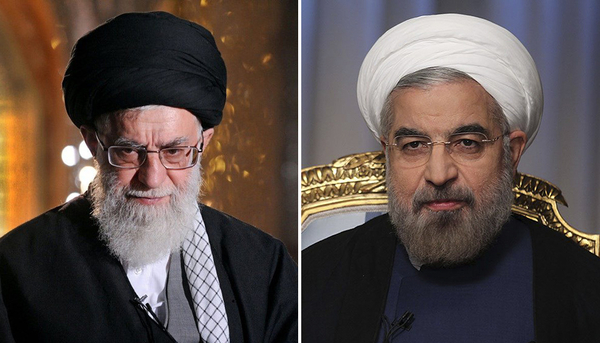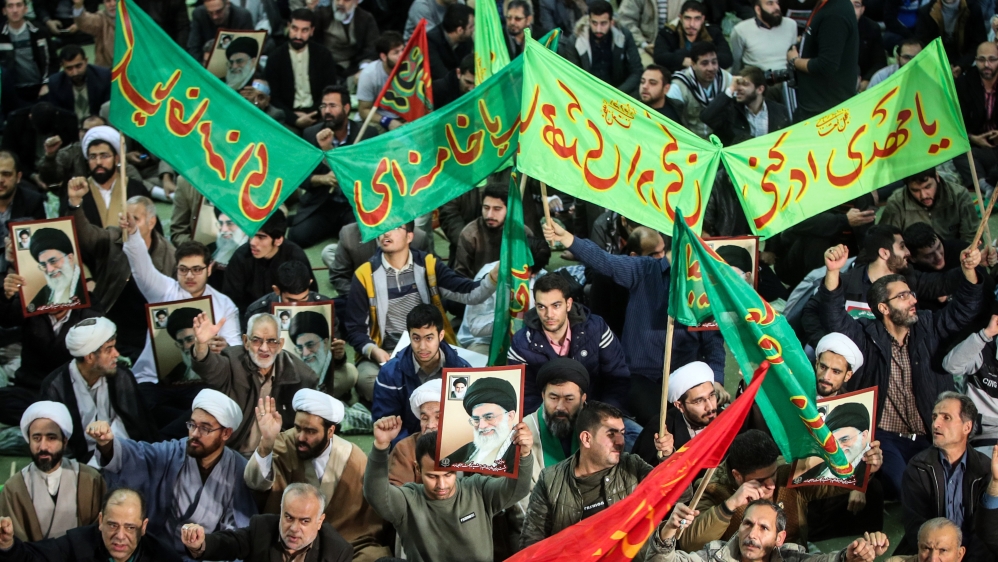The recent protests in Iran signal another turning point in its political development. Iranians born after the Islamic Revolution of 1979 have taken part in two other major protests against the government: The student protests in Iran of 1999 and the Green Movement in the aftermath of the 2009 Presidential elections.
However, the recent instances of civil disobedience are distinct from the latter two in several ways. Unlike in the 1999 and 2009 protests which were concentrated in urban centers and led mainly by the middle-class, this year’s protests spanned the country, were concentrated in Iran’s more remote provinces and largely driven by individuals from less affluent classes, which also constitute the political base of support for the Islamic Republic. Participation of the youth in the ethnic and marginalized regions of Iran was especially evident. This group was virtually absent from the green movement protests.
Unlike previous protests in Iran directed at certain institutions or political parties, the 2017-18 uprisings railed against the entire Islamic Republic establishment, including the reformists and the conservatives. The 1999 student protests were led by those who had voted for the pro-reform President Mohammad Khatami, and the 2009 Green Movement led by a previous prime minister and head of the country’s Parliament contested election results on behalf of a particular party.
This time, however, protesters opposed the Supreme Leader, Ali Khamenei, and the pro-reform President Hassan Rouhani. Interestingly, both the ruling establishment and many participants in the Green Movement were caught by surprise by the radical slogans and broad geographic distribution of the protests.

The fact that many of those seeking change in Iran are looking past reformists is bad news for the leaders of the Islamic Republic. Faith in the potentiality of incremental reforms has contributed significantly to the survival of the Islamic Republic’s establishment. The establishment has actively used reformist factions to channel the anger and frustration of Iranians and navigate the pressures of international critics.
Rather than seeking solutions beyond outside the system, for example, Iranians have gone to the polls to express their dissatisfaction towards the supreme leader. Even foreign analysts have considered “reformists” to be a form of internal opposition to the country’s conservative leadership; often blaming conservatives for insufficient reforms and giving credit to reformists for any temporary improvement.
But after 20 years of leadership by two reformist presidents, it’s largely acknowledged that fundamental reforms are not possible by way of the polls and that reformist presidents do not have the authority nor will to push for meaningful change.
Moreover, so-called reformist and conservative factions within the Islamic Republic have their differences, but what binds them together is stronger than what separates them. They all, for example, believe in political Islam and different variations of a theocratic system. They share views on religious values, and they want to serve, albeit in different ways and using different approaches, the current system. Importantly, these factions are all, more or less, involved in massive corruption that has reduced the Iranian economy to its currently tattered state.
This last point is especially relevant since the recent protests in Iran were engendered by fears over increasing poverty, unemployment, and corruption. Iranians are tired of struggling every day just to cover their most basic costs while the children of the revolutionary ayatollahs, reformists, and conservatives, inherit luxurious circumstances. Teachers and workers often don’t receive salaries for several months, while high-ranking members of the country’s Revolutionary Guard Corps (IRGC) spend unlimited amounts of money in campaigns that perpetuate gross human rights violations across the Middle-East.

The people that protested in Iran are fed up with a corrupt judiciary where judges serve up amputations for petty thieves as justice while reports of corruption and ill-gotten gains informed by allegations that the country’s Head of Judiciary has 63 personal bank accounts hosting the people’s money are not investigated. These sentiments were evident when protesters used slogans like: “We live like beggars while the leader plays God” or “Leave Syria alone, think about us.”
The regime appears, to some, to have managed to suppress even more of the protests in Iran. But both the leaders of the Islamic Republic and those Iranians are still awaiting representation and respect for their basic dignity know that this was a turning point. One which lays bare the increasingly converging interests of an urban middle-class striving for civil liberties and a growing number of young people in the provinces struggling with unemployment, poverty, and corruption.
The interests of the Islamic Republic are incongruous with those vying for civil liberties because such freedoms are not compatible with the current system. Nor is it capable of finding a long-term solution to the increasing poverty and unemployment as long as the entire system including the IRGC, the Supreme Leader’s inner circle, and oligarchy of charities linked to the different factions are involved in and responsible for the massive corruption. The response will continue to be calls for more repression and use of violence and an increasing crackdown on the civil society; accompanied by disastrous consequences.
For meaningful change to happen, the political and economic costs for human rights violations and repression of the civil society must become too high for the Iranian authorities. As Iranians continue to demand political reforms that address corruption, impunity, and a lack of civil liberties, the international community must raise the profile of human rights above other interests as they continue to engage with the Islamic Republic. Implementing fundamental reforms must be a basic condition for Western investments in the country.
On the 31st December 1977, President Jimmy Carter, who was celebrating New Year’s Eve with the Shah in Tehran, said: “Iran, because of the great leadership of the Shah, is an island of stability in one of the more troubled areas of the world.” If he knew that just one year later the Islamic revolution would change the geopolitics of the Middle East for the next 40 years, he would have pushed for much faster democratic reforms.
Iran is in a similar situation today. Surrounded by countries with civil and sectarian wars, it might seem much more stable than it is. This time we must use this likely short-lived opportunity to steer into the changing the course of the history with a course in the right direction.






















